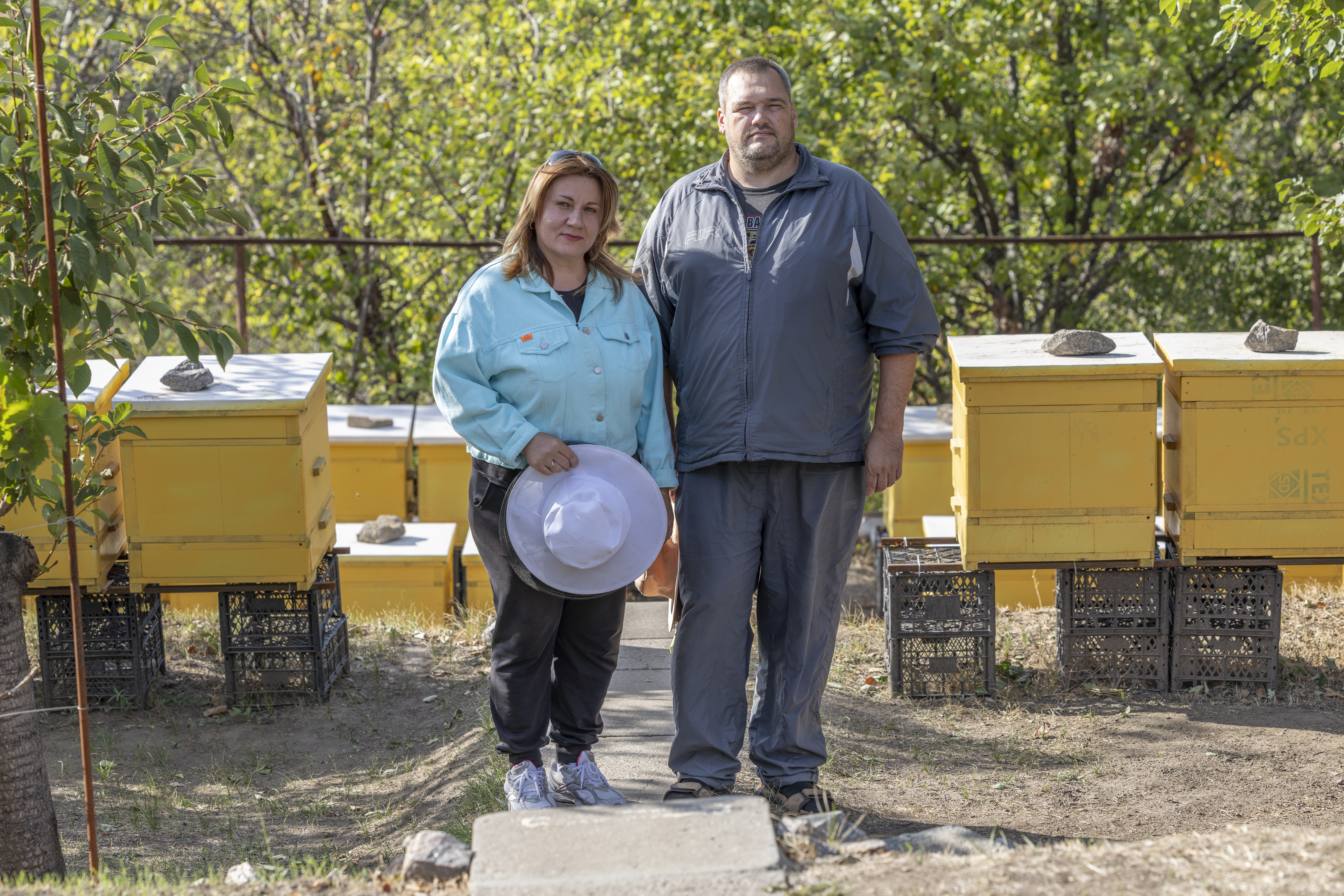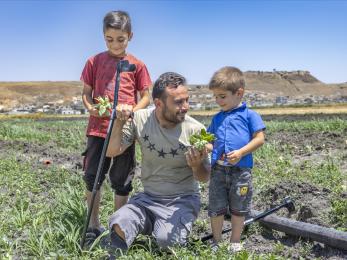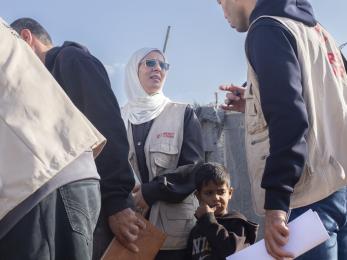Syria’s greatest force for change: Its people
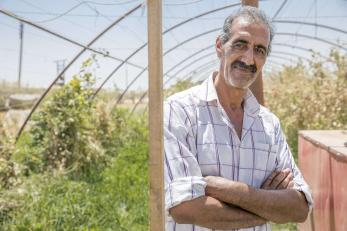
Ten long years into the war in Syria, the country is undoubtedly one marred by conflict. Makeshift bunkers, military checkpoints and collapsed bridges and buildings dot the landscape. So do white displacement tents. Competing armed groups and geopolitical forces fumble for power and resolution as clashes continue across the country, and uprooted families attempt to forge homes in deserted mosques and schools.
More than 12 million Syrians are displaced, forming the largest displaced population in the world, by far. Over 13 million people within Syria are in need. The economy is in shambles, reportedly weaker than at any time before the war, and in continued freefall. The value of the Syrian pound is also at a record low. And the agriculture industry, once a pillar of the Syrian economy, is in disrepair, with acres of rolling agricultural fields languishing abandoned across the country. Amidst this economic chaos, 12.4 million people are facing hunger. All while the annual humanitarian appeal remains chronically underfunded by billions of dollars.
The consequences of this crisis are truly staggering. Yet, among these devastating statistics is one encouraging number that cannot be overlooked: 17 million, the number of Syrians still living in the country, each a powerful source of potential to chart a better path forward for themselves and their communities. As external powers grapple to reach a political solution, it’s this population, including many of Mercy Corps’ own team members, who face the day-to-day reality of the conflict — and persist with their lives and hope for a future despite it.
Mercy Corps has worked alongside these communities since the start of the crisis, consistently one of the largest aid groups supporting those affected to access food, water and shelter and restore stability where possible. As the war draws on, we’re still dedicated to our response. And looking ahead to the next 10 years, we’re reinforcing our commitment to the country’s biggest asset for progress: its people.
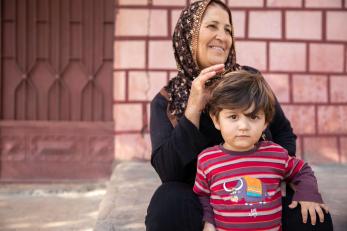
Looking ahead: Our 3 objectives to strengthen Syrian communities
After a decade of despair and destruction and a stagnant peace process, we must continue affecting positive change and recovery. Having witnessed the resilience of Syria’s people to persevere with strength and hope in the face of overwhelming circumstances, we believe the promise of a more stable, prosperous future is rooted largely in them.
Our pledge going forward is to bolster this potential, focusing on three objectives that support the Syrian people to claim ownership of their survival and recovery and create more stable communities — from the ground up.
1. Meet immediate needs
The violence and displacement across Syria have cut millions off from their livelihoods and homes, in many cases more than once, crippling their ability to earn a stable income and meet their basic household needs. Additionally, damage to public services and infrastructure has left 12.2 million people in need of water and sanitation support and 5.9 million people without adequate shelter.
Currently, 80% of the population lives below the poverty line, and the deterioration of the agriculture industry and economy has fuelled an unprecedented hunger crisis in which the average price of staple foods has increased 251% from November 2019.
In this context, our work will — and must — continue to ensure people have the basic resources they need to survive. Only when their primary needs are met can we help Syrians make genuine strides toward recovery. This support opens the door for people to focus on longer-term needs, like re-establishing income sources, instead of where their family’s next meal is coming from.
From early in the crisis we’ve provided emergency supplies like water, food and shelter to the most vulnerable, and where need continues to be immediate, such as in displacement sites, in-kind aid of these essentials will remain a necessary part of our response.
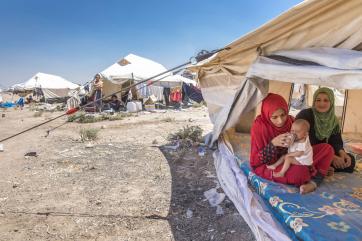
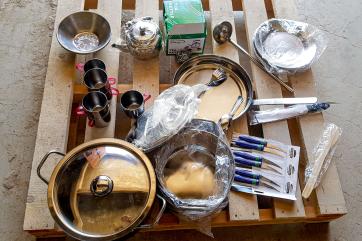
2. Increase economic independence
With more than half of potential workers without access to employment and the economy in crisis, enabling more people to work and meet their needs is critical to boosting overall stability and decreasing reliance on aid. With this in mind, Mercy Corps’ emergency assistance, where possible, will be coupled or replaced with restoring opportunities to earn income, particularly in the agriculture sector, which remains a key industry and has potential to put many people back to work.
With rampant hunger, skyrocketing food prices and millions out of work, it’s more important than ever that we partner with local farmers to ensure they have what they need today and for successful ongoing harvests. Getting the agriculture industry — and others — back up and running is one of the most direct and widespread ways we can help Syrians overcome the current food and economic crises and increase resilience for the future.
In northeast Syria, we’ve already started by providing farmers with training and agricultural supplies, like seeds and irrigation equipment, to establish sustainable sources of crops. Active and productive gardens drive independence and well-being, both by improving access to food and generating income.
Our research shows supporting people to earn a living during conflict offers more and better prospects for survival and recovery — and even a sluggish economy, battered by war, comes with openings to do so. Across the country, we also offer grants for displaced Syrians to start new, demand-driven businesses in their places of refuge; teach young people new and marketable skills; and strengthen local industry by linking buyers and sellers and connecting small businesses to microfinance options.
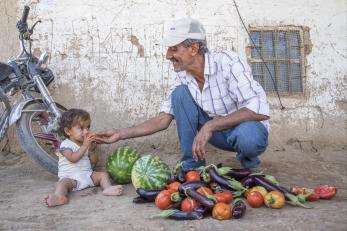
3. Foster community peacebuilding
Ten years of violence and instability — and the fear that comes with it — has inevitably taken its toll on Syria’s social fabric. Traditional systems for conflict resolution have deteriorated and trust in public institutions is low, leaving Syrians more likely to rely on their immediate communities for protection and settling disputes. But a productive path forward hinges on Syria’s people charting the course together.
Community peacebuilding can begin even in the midst of conflict. It can improve feelings of trust and security and create an environment in which peace can prosper. We’ve seen community peacebuilding reduce tension around the world, including between Syrian refugees and host communities, where community-led projects like playgrounds and gyms encourage cooperation and a mutual sense of belonging. We see a tomorrow in Syria in which local collaboration is driving equity, creating opportunity and advancing recovery. A healthy, harmonious community will always be able to achieve more than one individual can accomplish alone.
While a formal peace deal for the Syria crisis remains elusive, we needn’t wait to make progress on the ground. Together with local partners, we’ve started a new peacebuilding initiative to restore social trust and foster grassroots stability. With community workshops, dialogue sessions and joint civic projects, we will support Syrians to work together to strengthen their communities and forge ahead with a shared vision for the future.
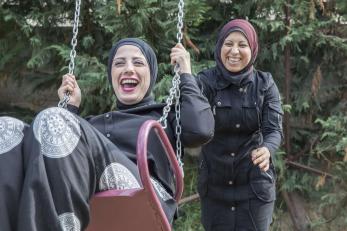
We know moving beyond the crisis in Syria will be an arduous task, but we have 17 million reasons to remain hopeful and committed. In 10 exhausting years of war, Syria’s people have not given up the belief that a better future lies ahead. And we won’t give up on them. For as long as it takes, we’ll invest in the path we see in front of us — the one that begins on the ground, with Syrian people at the heart of it.

